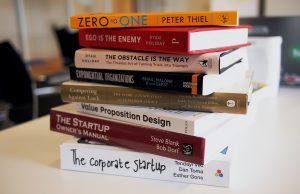Why Specialized AI Agents Outperform General AI Models? | by Seraphina blake | Coinmonks | Mar, 2025
Artificial Intelligence (AI) has evolved significantly, from general-purpose models capable of performing a wide range of tasks to specialized AI agents designed to excel in specific domains. While general AI models, such as OpenAI’s GPT series or Google’s Bard, demonstrate versatility, they often lack the precision and efficiency needed for highly specialized tasks. In contrast, specialized AI agents — built with domain-specific knowledge and tailored algorithms — offer superior performance, accuracy, and scalability. In this blog, we will explore why Specialized AI agents are more effective than general AI models and why businesses should focus on specialized AI agent development to enhance efficiency and drive innovation.
1. Understanding General AI Models
General AI models are trained on vast datasets encompassing a wide variety of topics, making them highly versatile. These models, such as ChatGPT, Gemini, and Claude, can generate human-like text, translate languages, code, and even assist in creative writing. However, they come with several limitations:
Lack of domain-specific knowledge: General AI models provide generic responses that may not be well-suited for specialized industries such as healthcare, finance, or law.
Overhead of unnecessary data: Since they are trained on extensive datasets, they often generate irrelevant or unnecessary information.
Inability to handle industry regulations: Many industries require compliance with strict regulations, which general AI models are not inherently designed to follow.
Lower accuracy in specialized applications: Their broad training data means they may not offer the precision required for specific tasks, such as medical diagnosis or legal contract analysis.
2. What Are Specialized AI Agents?
A specialized AI agent is an AI system built for a specific function, industry, or task. Unlike general AI models that attempt to handle multiple areas with moderate accuracy, specialized AI agents are fine-tuned for particular applications, ensuring precision and efficiency.
Characteristics of Specialized AI Agents:
Task-Specific Training: They are trained on curated datasets relevant to a specific industry or task, ensuring higher accuracy.
Domain Expertise: These agents incorporate industry knowledge, making them more reliable in areas like healthcare, finance, cybersecurity, and customer support.
Regulatory Compliance: Many specialized AI agents are designed to adhere to industry standards, making them safer for enterprise use.
Optimized Performance: Because they focus on a narrow domain, these agents process information faster and with fewer errors compared to general AI models.
3. Why Specialized AI Agents Outperform General AI Models
3.1 Higher Accuracy and Reliability
General AI models generate responses based on probability, which sometimes leads to inaccurate or misleading outputs. In contrast, specialized AI agent development ensures that the models are fine-tuned to minimize errors in their respective domains.
For example:
A healthcare AI agent trained on medical literature and patient data will provide more precise diagnoses than a general AI model.
A financial AI agent can accurately assess market trends, reducing the risk of errors in financial analysis.
3.2 Enhanced Efficiency and Speed
General AI models often require more computational power because they process vast amounts of information across different domains. However, when businesses develop specialized AI agents, they optimize models to perform specific tasks, reducing processing time and increasing efficiency.
For instance:
A legal AI agent trained in contract analysis can review documents in seconds, compared to hours for a human lawyer.
An AI-powered cybersecurity agent can detect threats in real-time with higher precision than a general security monitoring tool.
3.3 Customization and Scalability
Companies looking to build specialized AI agents can customize them to meet their unique business requirements. Unlike general AI models, which offer limited customization, specialized AI can be tailored to incorporate:
Industry-specific terminology
Proprietary data and company policies
Integration with existing software solutions
Moreover, specialized AI agents are scalable. As businesses grow, these models can be further trained to handle more complex tasks without requiring an overhaul of the entire AI system.
3.4 Better Security and Compliance
Industries like finance, healthcare, and legal services have strict regulations regarding data security and privacy. General AI models do not guarantee compliance with specific legal frameworks, whereas specialized AI agent development ensures that models adhere to industry regulations, such as:
HIPAA (Health Insurance Portability and Accountability Act) for healthcare AI
GDPR (General Data Protection Regulation) for data protection
FINRA (Financial Industry Regulatory Authority) for finance-related AI solutions
With built-in compliance measures, specialized AI agents mitigate legal risks and ensure safer implementation.
3.5 Improved User Experience
Specialized AI agents enhance user experience by delivering more relevant, context-aware, and precise interactions. Unlike general AI models that provide broad and sometimes vague responses, specialized AI agents are trained to understand industry-specific queries.
For example:
A customer service AI agent trained for an e-commerce brand can accurately answer product-related questions.
A real estate AI agent can analyze property data to provide market insights tailored to a specific location.
4. Real-World Applications of Specialized AI Agents
4.1 Healthcare
Specialized AI agents assist in:
Medical diagnostics (AI-powered imaging, disease detection)
Patient management (AI-driven virtual assistants for hospitals)
Drug discovery (Analyzing compounds for pharmaceutical research)
4.2 Finance
AI-powered financial agents help in:
Risk assessment and fraud detection
Automated trading and investment insights
Regulatory compliance monitoring
4.3 Legal Industry
Specialized AI in the legal field enables:
AI-powered contract review and analysis
Legal research and case law analysis
Automated compliance monitoring
4.4 Cybersecurity
AI agents in cybersecurity:
Detect and prevent cyber threats
Analyze network vulnerabilities
Automate security compliance checks
5. How to Build Specialized AI Agents for Your Business
Companies looking to develop specialized AI agents must follow these key steps:
Define Business Objectives: Identify the specific problems that need to be addressed.
Collect and Curate Data: Use high-quality, domain-specific data to train the AI model.
Choose the Right AI Architecture: Select models that align with the industry’s needs (e.g., NLP models for legal and finance, computer vision for healthcare).
Train and Fine-Tune the Model: Use supervised and reinforcement learning for improved performance.
Integrate with Existing Systems: Ensure seamless compatibility with current software infrastructure.
Implement Continuous Learning: Regularly update the model with new data to maintain accuracy and relevance.
Conclusion
The shift towards specialized AI agents is transforming industries by providing greater accuracy, efficiency, customization, security, and user satisfaction. Unlike general AI models that attempt to cover multiple areas with moderate effectiveness, specialized AI agent development ensures superior performance in specific tasks.
If you’re looking to build specialized AI agents for your business, now is the time to invest in AI solutions tailored to your industry’s needs. By leveraging the power of domain-specific AI, businesses can unlock new opportunities, streamline operations, and drive innovation.
Source link














Post Comment